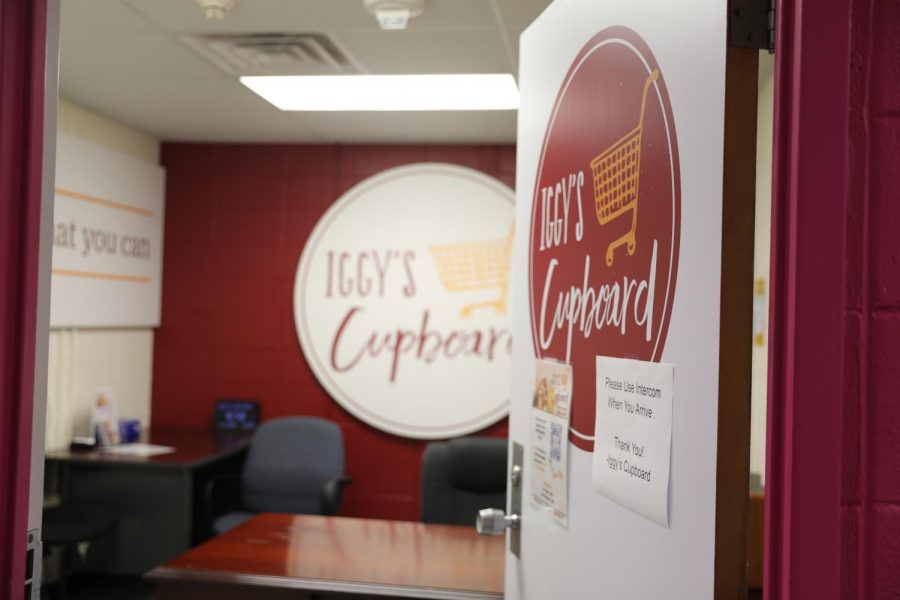Resident assistants voice concern over university food allowance
The entrance to Iggy’s Cupboard, an on-campus food pantry for students, welcomes students in. Students on Loyola’s campus have experienced food insecurity and relied on the pantry for support. Photo credit: Hannah Renton
March 26, 2021
Asking a friend for a meal swipe into the dining hall or a trip to Iggy’s Cupboard is the norm for Jacob, a resident assistant. He said he has always been diligent about rationing the 75 meal swipes and 500 Wolf Bucks he is given in exchange for his RA position each semester, but that the supply does not provide three meals a day, leaving him looking for alternative food options.
“75 block meals and 500 Wolf Bucks, budgets out to almost a meal a day,” Jacob said.
This semester, Jacob applied for food stamps with the state of Louisiana because he became worried about his access to food. His application was approved.
According to some resident assistants, food insecurity is a prevailing issue. Jacob, whose name was changed for this story for the sake of anonymity, said that the resident assistants have mentioned their concerns to residential life before, and the lack of response made him feel like an “afterthought” for the university.
“A sophomore and a freshman on campus is required to have 12 meals a week,” Jacob said. “We don’t even get the bare minimum that every student is required to have because that’s what the university considers to be the safety net for food.”
Jaimie Jimenez was a resident assistant during the 2018-2019 school year and said he too worried about access to food during his time in the position. He said he often borrowed the ID of friends with unused meal swipes in order to get into the OR.
“I knew it was going to be a good day when a friend of mine would hand me their ID and said, ‘go crazy.’ When I was an RA, we were expected to stay on campus four to five days out of the week. That meant that I didn’t have much time to get off campus to get groceries,” Jimenez said.
While an RA, Jimenez lived in Buddig Hall. He said that while the twelfth floor kitchen made meal prepping possible, he spent more time focusing on his school work and extracurricular activities than food. He took advantage of Iggy’s Cupboard, an on-campus food bank, bi-monthly for non-perishable groceries.
“I ran out of Wolf Bucks at the end of March, so I relied on the pantry with meals,” Jiminez said. “I would rely on the rice packet meals or ramen noodles that I got from the cupboard. No, it wasn’t the healthiest of meals but it did the job.”
Jiminez said an anonymous letter was sent to university housing during his time as an RA that listed food insecurity as one of several concerns RA’s at that time had.
Amy Boyle, director of residential life, declined to comment on whether or not residential life has heard concerns from RA’s about their access to food.
“RA’s are encouraged to utilize the same resources we provide to all students, Iggy’s Cupboard would not be excluded from that,” Boyle said.
Jacob said he does not feel residential life has done an adequate job of listening to the concerns of its student employees and that he feels the topic of food insecurity has always been dismissed.
“They just try to shut it down. It’s all about budgets and holding on to the resources they have,” Jacob said. “It’s crazy that we’re supposed to be someone who says how much the university cares, yet we’re wondering if we are able to have two meals a day.”








